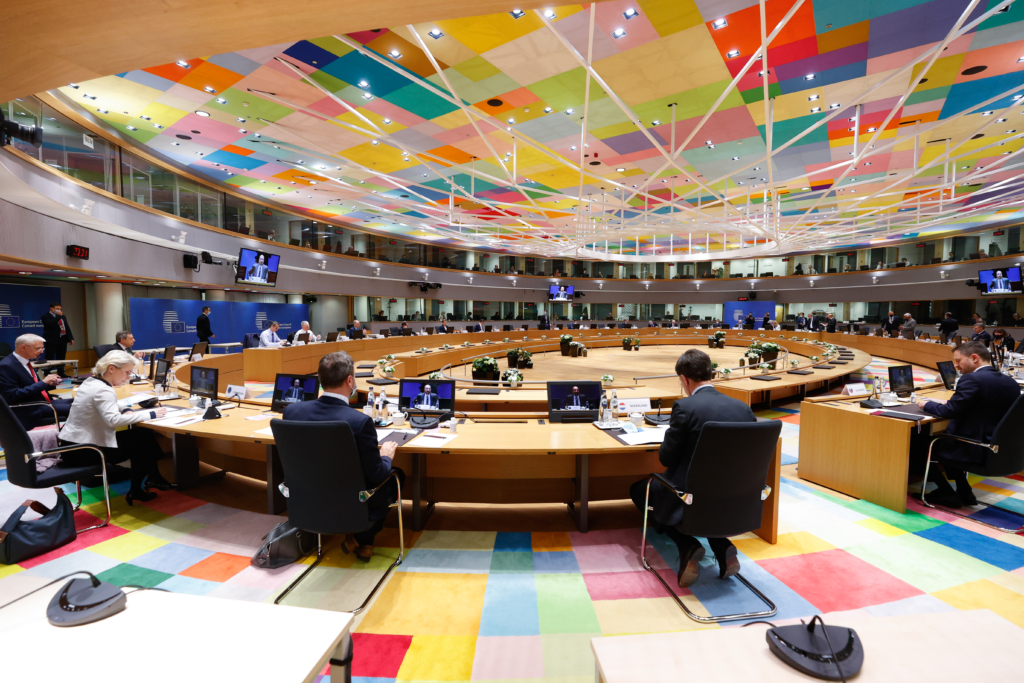As the situation in Ukraine worsens, the EU and its allies are moving forward with further sanctions aimed at Russia in hopes of stopping the invasion.
Following Russia’s invasion of Ukraine, threatening its sovereignty, Ursula von der Leyen, the president of the European Commission, tweeted that the EU and its allies ”will hold the Kremlin accountable.”
On the 24th of February, the day of the invasion, the United States, Canada, the United Kingdom, the European Union, Australia, and New Zealand, agreed to, in UK prime minister Boris Johnson’s words: ”the largest and most severe package of economic sanctions that Russia has ever seen.” These sanctions include but are not limited to the freezing of assets of Russia’s two largest banks, sanctions on several individuals and firms affiliated with the Russian oligarchy or involved in arms production, and stopping the export of high-tech equipment to Russia. As a result, the Russian stock market is experiencing its fifth-worst crash in history and the Russian Ruble plummeting in value.
While the Ukrainian President, Volodymyr Zelenskyy, in an address made on February 25th, expressed his gratitude for the sanctions and the countries implementing them, he nonetheless urged that further action be taken: ”Russian tanks are still shooting at residential buildings in our cities. Armored vehicles are still attacking, including civilians. Ordinary citizens of Ukraine. Europe has sufficient force to stop this aggression. What to expect from European states further? Cancellation of visas for Russians? Cutting off Swift? Full isolation of Russia? Recalling ambassadors? Oil embargo? Closure of the sky? Today, all this should be on the table, because it is a threat to us, all of us, all of Europe. You can still stop aggression. We must act without delay.”
As the situation worsened over the weekend, with Russian forces surrounding the Ukrainian capital Kyiv and Putin ordering Russia’s nuclear arsenal be ready to launch, the NATO powers responded accordingly.
On the 27th of February they agreed on a new round of sanctions. Most significantly, Russia, after much debate, has been barred from the SWIFT banking system. SWIFT, the Society for Worldwide Interbank Financial Telecommunication, allows for quick and safe financial transactions between countries. Blocking Russia from the system severely impedes its ability to trade and will cause delays in goods. Initially, several NATO members declared themselves tentative towards this measure due to its potentially harmful impact on the European economy. Europe’s heavy reliance on Russian natural gas and crude oil could drive regional energy prices through the roof. Thus, to minimize the negative impact of this sanction, only select banks, not affiliated with the energy industry, are being barred from the system.
Additional measures that were agreed on include the prohibition of Russian aircrafts in European air space, a ban on Russian state-owned media in the EU, and an agreement for the EU to finance weapon deliveries to Ukraine.
Several countries have also pledged support beyond these measures: Neighbouring countries have agreed to accept Ukrainian refugees. Poland’s Interior Minister, Mariusz Kaminski, even promised that Poland would take in ”as many as there will be at our borders.” The United States, alongside a pledge of monetary support, also offered to evacuate the Ukrainian President, Volodymyr Zelenskyy. In response, as reported by an official at an American intelligence agency, the latter allegedly replied: “The fight is here; I need ammunition, not a ride.”
Zelenskyy’s call to arms, or call for arms as it may, has been heeded by several countries. The UK and Denmark have permitted citizens that want to fight for Ukraine to join the war effort. Furthermore, more than 20 countries across the globe have pledged medical aid, weapons, and military assistance; Sweden among them. Prime Minister Magdalena Andersson revealed at a press conference on Sunday that Sweden will send 135 000 field rations, 5 000 helmets, 5 000 body armour suits, and 5 000 AT4s (Anti-tank weapons which are armour penetrating) to Ukraine. This is the first time since the former Soviet Union attacked Finland in 1939 that Sweden has agreed to send weapons into a conflict zone.
On the same day, the Swedish civil contingencies agency issued a recommendation that all Swedish citizens be prepared to go a week without any support from society. This entails a potential lack of access to food, water, and electricity. They emphasise the importance of keeping calm and being prepared for the worst-case scenario.










